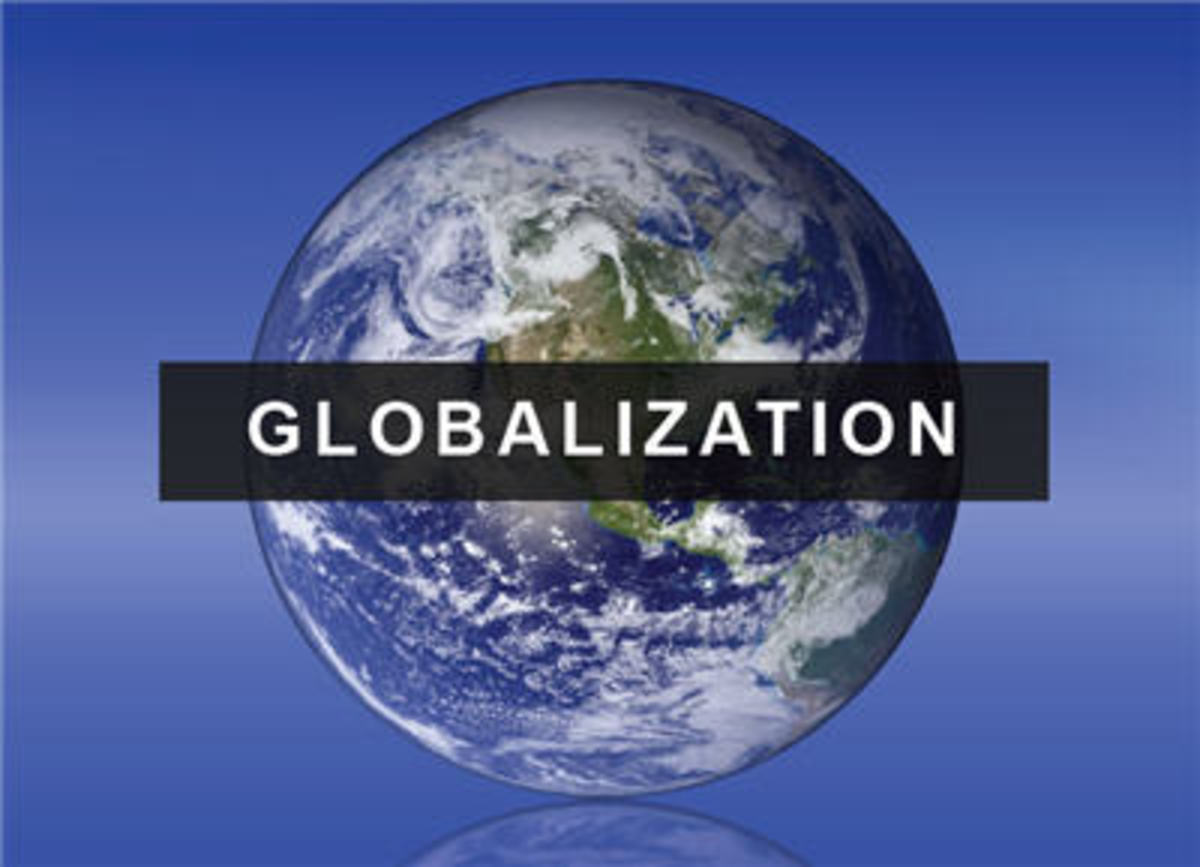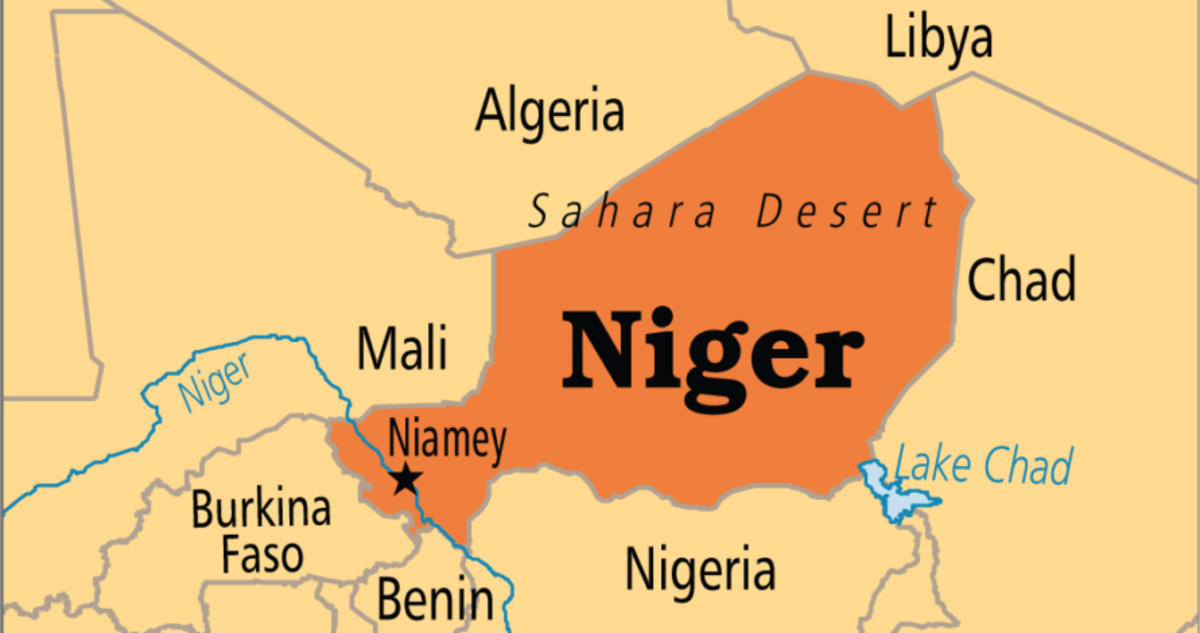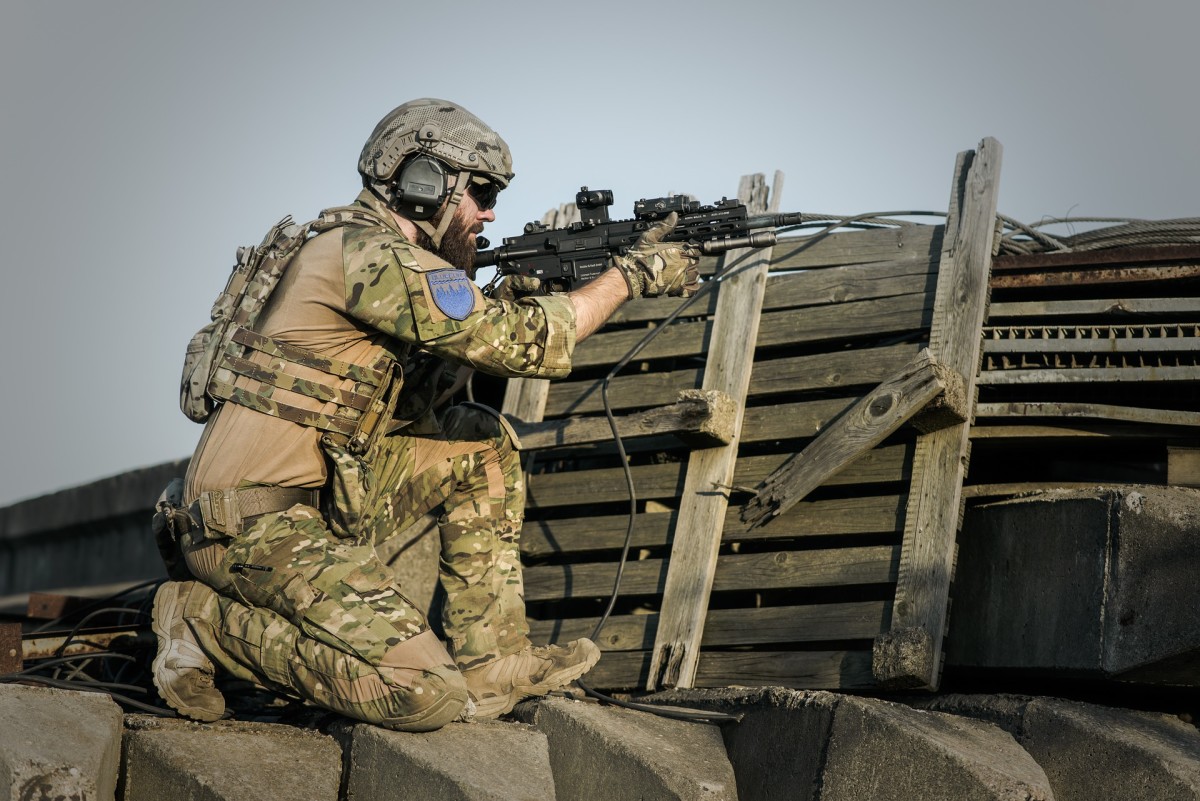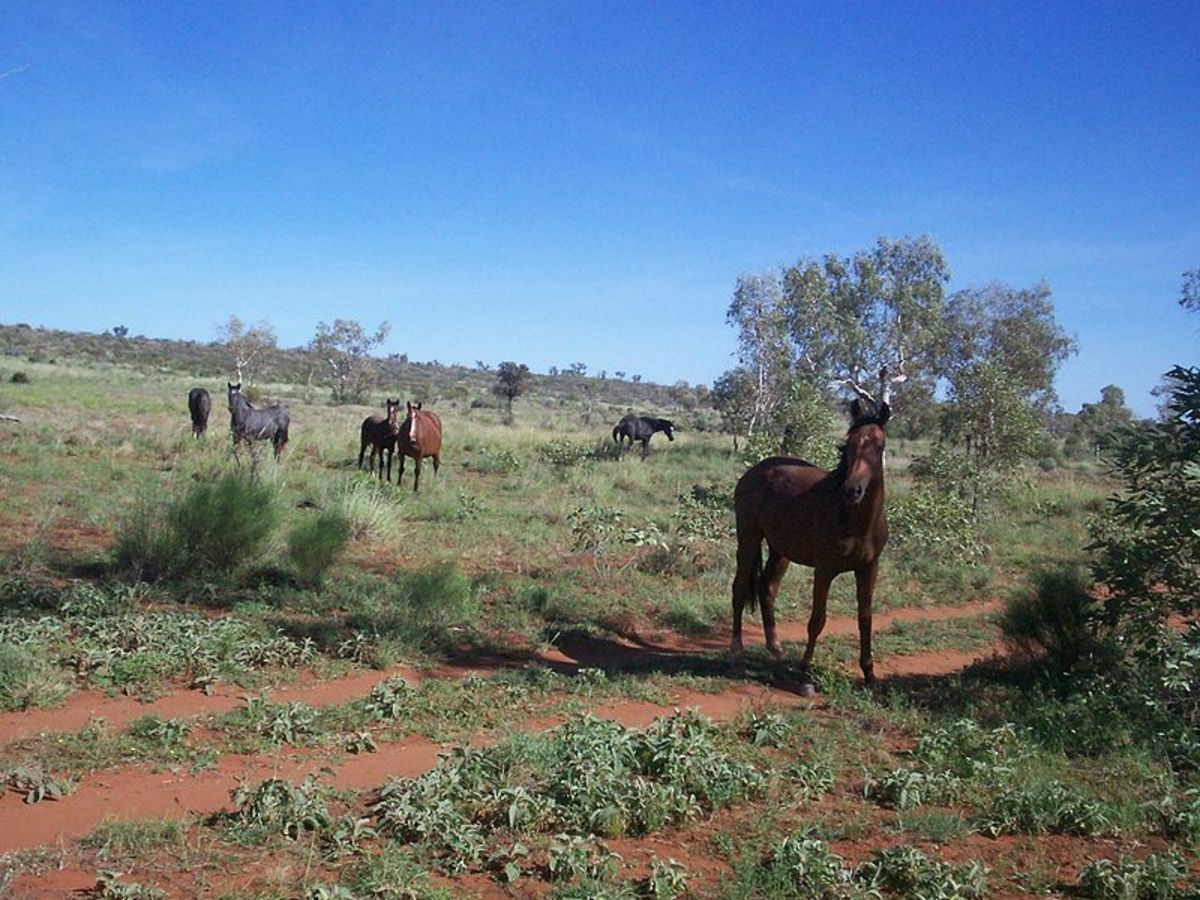The New Zealand Attack, an Act of Terrorism, Will Not Suffice in the Nation.
Illustrations from Global Terrorism Index, GTI 2015 reports.
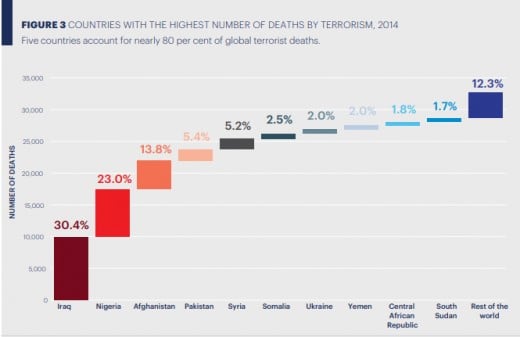
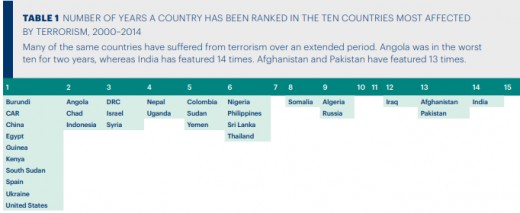
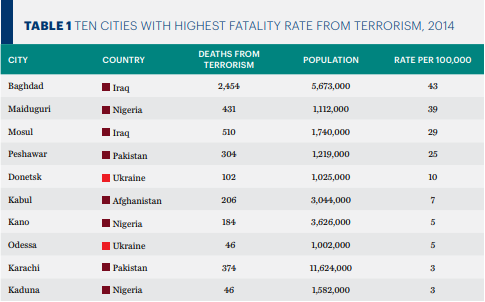
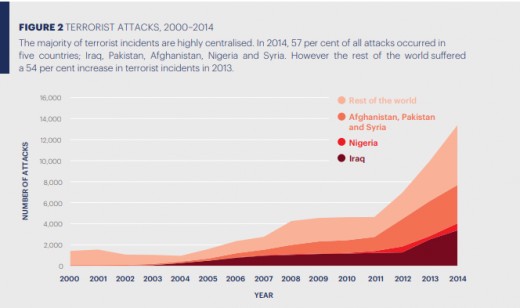
Terrorism will not see the light of the day in the realm of New Zealand
1. INTRODUCTION AND REVIEW OF THE ATTACK
In the light of the terrorist event in New Zealand that took fifty lives and another fifty injured, it was actually saddening that such could happen in a known environment for peace and tranquility. It was said that the last of such occurrence was in 1990 in Aramoana town of Dunedin in the south Island, when a man named David Gray, took to fire arms after an argument with a neighbour and took lives of innocent people in a shooting spree, but, ever since then nothing of such has happened until 15th of March, 2019 when the news rent the air and a gory video emerged of a shooter who stormed a worship place and was seen killing, shooting sporadically at worshippers in a particular mosque in Christchurch, the largest city in the Canterbury region in the realm of New Zealand. Looking at the video looks contrived, planned or portrays a long well-mapped intention and act, as most terrorist events are, as the supposed shooter, discovered to be an Australian who goes by the name Brenton Tarrant, had a well-placed head camera recording him while he engaged in the nefarious act. According to newsnow, an online news platform of Television New Zealand, TVNZ, it stated that the mosques shootings are the deadliest in the history of New Zealand, saying the Aramoana massacre of 1990 left only 13 people dead.
2. WHAT MAKES TERRORISM
The New Zealand attack, which was actually a terrorist activity as defined, that for an activity to be justified as a terrorist act, it must be targeted at a political purpose to reach a large and certain population by inflicting injury or bodily harm on the targets. However, this piece is to submit that terrorism will not survive in an economy like that of New Zealand, as the nation does not have history of armed conflict. Therefore, existing and secondary data in form of tables and illustrations from reports of Global Terrorism Index, GTI 2015 and 2018 are used to juxtapose the topic and my submission. That terrorism will not have a place in the realm of New Zealand. The country does not fall in the category or League of Nations to be infested with terrorism.
In my ongoing thesis on Effect of Boko Haram on Nigerian economy, I have learnt during the course of my thesis writing, more importantly, there are lots of existing works and many academic scholars have postulated theories cum assumptions about terrorism and terrorist-infested nations, but Enders and Sandler (2008 and 2009), in their numerous works and studies have posited more of theories which so far have had solid background from what can been seen in terrorism inflicted nations as empirical facts. The duo are terrorism research specialists who have conducted various studies and researches in the field of terrorism with the intention to x-ray the implications, costs and effects of the menace on nations plagued. They further stated that most countries infested with terrorism are countries with history of poor political structure, non-transparency in their polity and with history of or ongoing conflicts, particularly armed conflicts, Enders and Sandler (2008). This is the condition prevalent in the numerous terrorism-infected countries like Nigeria, Iraq, Pakistan, Afghanistan and Syria.
More so, it was published in GTI 2015 that 90% of terrorism-induced deaths and fatalities happened in just the five countries mentioned above, however, most of the countries have experienced terrorism-intensive killings due to history of instability in their polity and poor economic structures. Same as reports and findings from the latest Global Terrorism Index, GTI 2018, the five countries mentioned above still remain the most affected by terrorism recording more than 1,000 death casualties in various terrorism events between 2016 and 2017, although it was stated in GTI 2018 published in June of the year, that deaths from terrorism declined by 44% in 2017 but the act still remains widespread, postulated by European Foundation Centre as more of the development were recorded largely in Europe while other regions are still worse as seen in most affected countries stated above. Journal of Peace and Research in its publication of 2013, titled ‘Causality between terrorism and economic growth’ by Daniel Meierrieks & Thomas Gries (2013), posits categorically from study of the adverse impacts of terrorism, that most African and Arabic countries infested by terrorism were aftermath of the cold war and are all countries typical of irregular political structure, improper public management, administration, and attendance of instability or chaotic society.
3. POSSIBLE IMPLICATIONS OF THE CHRISTCHURCH ATTACK ON NEW ZEALAND
More importantly, the attack is not expected to affect the economy of New Zealand as postulated by Blomberg et al (2004), which says an economy would be affected after a terrorist event in the light of its existing capacity, which means a stable economy in the event of terrorism-infliction will only experience an immediate shock and significant direct costs for a short time which will not last but an insignificant continuous or indirect costs. However, Enders and Sandler (1996), posits that the cost of terrorism on an economy is a function of how large, steady and formidable an economy is before the attack, which stipulates that an economy like that of New Zealand would bounce back in few days after the attack without much impact on the economy, even on volatile sectors like the tourism, transportation and trade. Eric Olson and Enders Walter (2012), in their paper titled, “Measuring the Economic Cost of Terrorism”, submitted in the Handbook of Oxford of the Economics of Peace and Conflict, enunciates various direct and indirect costs attributed to terrorism, and they went further to posit that the general growth rate of a country can be reduced by terrorism, while its effects and costs are converged in few important sectors like tourism, transportation, FDI and financial markets as they tend to be affected by the acts of terrorism.
4. RATIONALE THAT TERRORISM WILL NOT SURVIVE IN NEW ZEALAND
As touching the various rationale that support the fact that New Zealand will ensure terrorism does not suffice in its borders, firstly, the said country, New Zealand is a nation state that does not support terrorism and this can be seen in the fact that it was part of the group of nations to declare Boko Haram insurgency in Nigeria as a terrorist group despite the long-plea and sentiment by the Nigerian government to the international community not to declare the nation or the group as a terrorist organization, below is an illustration of a table extracted from Wikipedia showing New Zealand as the first nation to tag Boko Haram activities in Nigeria as that of a terrorist organization.
Table 1. Showing countries and dates of declaring Boko Haram as a terrorist group
Country/Organization and Dates Boko Haram was declared Terror Group
New Zealand 2012, August 20th
United Kingdom 2013, July 10th
United States of America 2013, November 14th
Canada 2013, December 24th
United Nations 2014, May 22nd
Australia 2014, June 26th
United Arab Emirates 2014, November 15th
Source: Wikipedia (Boko Haram; under International responses)
From the above table, it indicates that the nation was the first in August 20th, 2012 to designate Boko Haram as a terror group which shows it is a country with zero-tolerance for terrorism and its dangerous activities. Presently, the country is reviewing its gun-ownership policy which is generating a widespread local debate and attracting international attention mainly for the purpose of tightening its fire-arm policy and ensuring security of lives of its numerous citizens and cross-culturally diversified societies. More importantly, New Zealand is in the league of developed nations, same applies to its regional cum continental neighbouring counterpart, Australia, which they share common economic pattern. The realm of New Zealand is characterized as an economy with stable economic structure and attendant peace in its several independent territories surrounding the highly ranked economically performing nation, therefore it does not fall in the category of nations to be adversely affected or plagued by terrorism. Sequel to this, it is supported by the work of Blomberg et al (2004), which juxtapose that the implication of terrorism is significant in developing nations but not in the advanced OECD (Organization for Economic Co-operation and Development) economies. Unlike other terrorism-infested nations where several events have marred the economies, GTI found out that Iraq, over the period of 2005 to 2014 lost about U$159 billion in Gross Domestic Product (GDP, PPP) for the stated period due to terrorism infestation present in its border making the economy not to run on its full potential or earn national income at full-capacity as an oil-producing country, just like the paradigm of Nigeria, an oil-rich economy which was said to lose over U$6.1 billion in the year 2010 in FDI, Foreign direct investment due to Boko Haram insurgency. Another germane premises is that New Zealand has never made the ranks of nations with fatalities from terrorist operations as seen in the figure above.
FIGURES 1,3,4: Showing cities and countries with the highest attacks cum fatalities from terrorism.
The above are figures from Global Terrorism Index from their 2015 study of terrorism inflicted nations indicating cities and countries with highest number of fatalities, incidents, particularly deaths arising from terrorism in 2014, and from year 2000 when terrorism actually gained widespread momentum worldwide with an upsurge in fatalities in the year 2013 and the highest ever deaths recorded from terrorism globally in 2014. It can be seen that New Zealand or any nation from the pacific region is not found in the lists which juxtapose the fact that the country does not have history of terrorism. More so, GTI Global Terrorism Index which conducts many studies on terrorism related events worldwide has a database for most terrorism happenings and infliction in every nation infested by terrorism. Their studies are conducted by IEP, Institute of Economics and Peace and with a detailed publication every two years but annual evaluation and ranking of terrorism infliction worldwide in terms of costs, fatalities and effects by countries infected. Consequent upon this, in all their studies, evaluations and rankings, the realm of New Zealand has never been featured, as seen in the figure above indicating the number of times a country has fallen in the group of top ten nations inflicted by act of terrorism spanning years 2000 to 2014.
FIGURE 2: showing number of years a country has been featured among ten most countries affected by terrorism.
Consequently, the picture above highlights countries which were ranked as ten most terrorism-inflicted nations from 2000 to 2014, particularly enunciating the number of times terrorist-plagued nations have featured in the ranking. India has the highest, followed by Afghanistan and Pakistan spanning the period evaluated. Few countries from Europe and America made the list while most are from Middle East, Asia and the Africa region, none from the south pacific which indicates a region with attendant peace.
5. CONCLUSION
Sequel to all the rationale and premises stated above with justifications from existing literature, images, figures and table examined, it can be seen that the nation, New Zealand is actually a no-ground for terrorism activity. Although, as much as my thesis is at the approval stage by my supervisor, and the need to get ratification from jury of academic personnel and professors. Nevertheless, I can draw conclusion from my on-the-study knowledge and from existing works, studies and researches which is that New Zealand does not fall into the category of countries that would be infested with terrorism. Therefore, the conclusion is that terrorism has or cannot come to stay in the realm of New Zealand.
REFERENCES
TVNZ: newsnow; Christchurch Mosque terror attacks
https://www.tvnz.co.nz/one-news/new-zealand/live-police-confirm-49-people-dead-in-christchurch-mosque-terror-attacks?variant=tb_v_2
Measuring the Economic Cost of Terrorism, Enders Walters and Eric Olson, (2014). https://www.socsci.uci.edu/~mrgarfin/OUP/papers/Enders.pdf
Global Terrorism Index, GTI 2015; Institute for Economics and Peace
http://economicsandpeace.org/wp-content/uploads/2015/11/Global-Terrorism-Index-2015.pdf
Economic Effects of Terrorism (n.d) https://securipedia.eu/mediawiki/index.php/Economic_effects_of_terrorism
Daniel Meierrieks & Thomas Gries. (2013) Causality between terrorism and economic growth.
http://file.prio.no/Journals/JPR/2013/50/1/Meierrieks%20and%20Gries%202013%20replication.zip
Wikipedia: Boko Haram; International Responses
https://en.wikipedia.org/wiki/Boko_Haram
Global Terrorism Index, GTI 2018 Review, reliefweb
https://reliefweb.int/report/world/global-terrorism-index-2018
Flashback: Aramoana Masacre , Stuff NZ; Crime
https://www.stuff.co.nz/national/crime/63230292/null
Blomberg, Brock & Hess, Gregory & Weerapana, Akila. (2004). Economic Conditions and Terrorism. https://www.researchgate.net/publication/4911742_Economic_Conditions_and_Terrorism
Walter Enders and Eric Olson. (2012). Measuring the Economic Costs of Terrorism
The Oxford Handbook of the Economics of Peace and Conflict
DOI: 10.1093/oxfordhb/9780195392777.013.0016
Walter Enders and Todd Sandler. (1996). Terrorism and Foreign Direct Investment in Spain and Greece, First published: August 1996 https://doi.org/10.1111/j.1467-6435.1996.tb01400.x
Walter Enders and Todd Sandler. (2008). Economıc Consequences of Terrorısm in Developed and Developıng Countrıes: An Overvıew, retrieved from https://www.utdallas.edu/~tms063000/website/Econ_Consequences_ms.pdf
Daniel Meierrieks and Thomas Gries. (January, 2013). Causality between terrorism and economic growth, First Published January 30, 2013 https://doi.org/10.1177/0022343312445650
Urban Securipedia. Economic effects of Terrorism. Retrieved from https://securipedia.eu/mediawiki/index.php/Economic_effects_of_terrorism visited in November 2018
What are the Effects of Terrorism? (n.d). Reference Site on
World View: Social Sciences, retrieved from https://www.reference.com/world-view/effects-terrorism-e9573d1e98740bbc visited in October 2018.
This content is accurate and true to the best of the author’s knowledge and is not meant to substitute for formal and individualized advice from a qualified professional.
© 2019 TAIWO JAMES ODEBOLA

